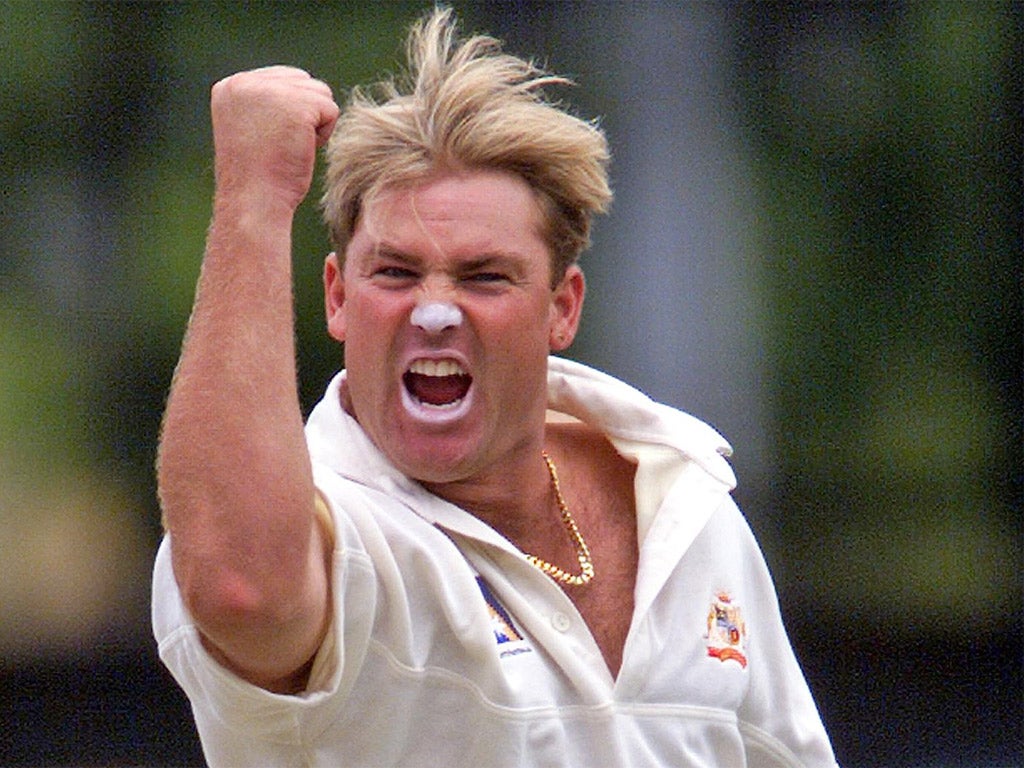John Walsh: Ignore the mixed messages – eat less and move more
Notebook


It's back-to-school time, and as the nation's parents make their way to department stores and uniform shops, it's also time to digest a shocking statistic. Uniform manufacturers are sending retailers ever-larger sizes: 42in-waist trousers and skirts, and 52in jackets, for Common-Entrance-age children; and 40in-chest jumpers for primary school children; as well as "sturdy fit" trousers with elasticated waistbands for 12-year-olds. These aren't freakishly sized garments. They're expected to sell in large numbers – to an expanding audience of expanding kids.
When I was at school, centuries ago, there was the odd fat kid in the playground who stood out among the skinny oiks and weeds, as if he suffered from a one-in-200 disorder. It was probably the same in the 1930s and the 1890s. Most children were thin and undeveloped and had waists like napkin rings. But in the last half century, an epidemic of avoirdupois has settled on British youth. According to the Child Growth Foundation, children's waistbands have ballooned since the 1970s by an average of 12.5cm, or five inches. Since 2000, the number of obese children has risen by a third.
It's going to get worse, and we know why: a combination of rubbish food at school, rubbish snack food at home, sugar-intensified soft drinks, a culture of stay-in-your-room-gazing-at-a-screen recreational activity and a terminal lassitude brought on by the worship of Rihanna and that Bieber kid.
We also know what should be done, don't we? A spokesman for the National Obesity Forum, Tam Fry (who happens also to be chairman of the Child Growth Foundation just around the corner) said recently that the solution is not to combat child obesity but to pre-empt it. "What we have not done is to spend or to focus sufficient resources into preventing obesity taking place. This means making sure that all food available is as healthy as possible and physical activity is encouraged."
Well, yeah, you feel like saying, that is blatantly stating the obvious, as Jamie Oliver was busily stating the obvious about school dinners, what? – seven years ago. His TV programme inspired the nation, but didn't impress children. The main result of government legislation was that the number of children eating school meals decreased by 400,000.
We have to keep nagging about it, though, don't we, because we all know that obesity can lead to diabetes, strokes and heart failure. Oh, but hang on – here's some new research, in the European Heart Journal, which says obesity isn't necessarily a bad thing, and that if you're fit and healthy despite being obese (I'm thinking the pre-Liz Hurley Shane Warne) you're in no more danger of dying than people of ordinary size. "Obesity," concluded a leader in the journal, "may carry benefit up to a certain degree."
Sometimes you despair of the messages we send our children about how to live, and of how ineffectual we are in keeping them from bad habits. All you want to do is instill in them my friend Lisa's four-word maxim for healthy living: "Eat less; move more." But how much would we appreciate it if the Government, somewhere between the health and education secretariats, could stand up to the food and soft drinks industry and regulate its supply of not just unhealthy but dangerous products into our children's innocent bodies? Before your charming, slender, five-year-old Little Mermaid starts coming home from school, five years hence, resembling Ursula the Sea Witch.
My 'Parade's End' puzzle
I confess I share with some Independent readers a certain bafflement about what's happening in Parade's End, BBC2's ravishing adaptation of Ford Madox Ford's masterpiece. The relationship between Christopher Tietjens and his wife Sylvia, played by Benedict Cumberbatch and Rebecca Hall, is a puzzle in itself – he so idealistic and virtuous, she so callow and dégagé.
How, I kept wondering, could this mismatched couple ever have got together? I became indignant that they should be married. Then the penny dropped. I'd seen them co-starring before, in a 2006 film called Starter for Ten, in which James McAvoy played a student who joins a University Challenge team. Among his associates were Ms Hall, playing a stroppily idealistic political activist, and Cumberbatch playing a pompous public-school quiz captain – characters quite different from their roles in Parade's End.
I really shouldn't be surprised that screen actors have impersonated other people in earlier productions – but the coincidence was clearly too odd for my subconscious to deal with it.

Join our commenting forum
Join thought-provoking conversations, follow other Independent readers and see their replies